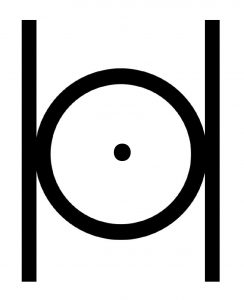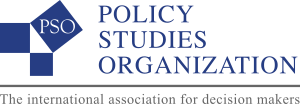
IXth World Conference on the History of Freemasonry
Bibliothèque du Grand Orient de France
16 Rue Cadet, Paris, France
Thursday 13th June – Saturday 15th June 2024
The PSO sponsors a number of resources related to fraternal movements and particularly to Freemasonry:
A video collection of hundreds of hours: https://www.ipsonet.org/video-library/multimedia
The journal Ritual, Secrecy, and Civil Society: https://www.rscsjournal.org/
The Westphalia Press Library of Masonic titles, which includes collections of lodge and Scottish degree records: https://westphaliapress.org/freemasonry-and-ritual-library
Presenters receive the conference medal at the reception desk. The conference began with a call for papers in 2006, and so it is in its 18th year. It first met in Edinburgh in 2007 with the support of Brother Sir Archibald Orr Ewing, Grand Master Mason of the Grand Lodge of Scotland, and Brother and Past Grand Master Mason the Earl of Elgin and Kincardine, (happily still with us in his 101st year). Much organizing was done by Brother Andrew Mushet, currently Grand Treasurer of the Grand Lodge of Scotland. The conference was supported by the Centre for Research into Freemasonry, University of Sheffield, which before closing did so much in encouraging research. Over the years over 700 papers from 23 countries have been delivered. The internet provides a large audience across the world with all sessions with translation. This year the Bartholdi Award for Distinguished Scholarship goes to Brother Jean-Luc Le Bras for his research on Auguste de Grasse-Tilly. The Regulus Award for Distinguished Service to the Scholarly Community goes to Peter Lanchidi for his outstanding biography of David Rosenberg. The Kilwinning Award for Lifetime Contributions to Research and Scholarship goes to Brother John Belton for his contributions to Masonic history. Each will receive the silver Memento Viveres of working tools. The Plenary Address will be delivered by Professor Margaret Jacob with commentary by Brother Brent Morris. John Belton, Roger Dachez, Pierre Mollier, Brent Morris, Cécile Révauger, Paul Rich, Daniel Gutierrez, all were at the first conference in 2007 and are participating in the conference in 2024. If we have missed someone, please tell us.
Created in 1889, the “musée de la franc-maçonnerie” extends to multiple fields : philosophy and politics,– from support for the Enlightenment in the eighteenth century to the Republican structures in the 1880s – religion, literature and the arts. . The museum showcases a magnificent full length portrait of the Comte de Clermont, Grand Master from 1743 to 1771 ; aprons of Voltaire and Jérôme Bonaparte, king of the short-lived realm of Westphalia — a kingdom for whom the PSO press is named ; and the sword of Lafayette.
Visitors can admire the world famous collection of eighteenth-century masonic earthenware and magnificent regalia (aprons, sashes and collars). Scholars can peruse remarkable documents, such as the first edition of Anderson’s Constitutions (1723).
Thursday 13th June/ Jeudi 13 juin*
*This workshop is by invitation only. Please contact Pierre Mollier for any questions at pierre.mollier@godf.org
Bibliothèque du Grand Orient de France
Workshop : Masonic libraries, collections and Archives… a world tour.
Introduction to the issue
Material Freemasonry: a framework for the study of the Craft
Felipe Corte Real de Camargo, Cardiff University.
Friday 14 th June/Vendredi 14 juin
TEMPLE GROUSSIER
9h15 : Accueil
9h30 Opening/ouverture des travaux:
by Paul Rich, Policy Studies Organisation’s President.
and Guillaume Trichard, Grand Maître du Grand Orient de France.
A distinguished trade unionist of long standing, Guiillame Trichard is Grand Master of the Grand Orient with its worldwide network of historic lodges and institutions. He frequently remarks and gives force to the position that , “The Grand Orient, in the days to come,will take all the initiatives that it deems useful, with friendly Masonic Obediences, to defend the universalist and fraternal Republic that we cherish.”
Paul Rich, lmember of St. John ‘s Lodge, Boston, the oldest lodge in the Western Hemisphere (1733), is life member of eight research. lodges.The Policy Studies Organization.and its Westphalia Press publishes 160 books a year and 38 academic journals, including World Affairs (1837). He advocates strongly reinforcement of the. Enlightenment roots of democratic society.
Chair: Paul Rich
• 9h45 ‒ Freemasonry and the secular Enlightenment
by Margaret Jacob, Emeritus Professor, UCLA, and S. Brent Morris
• 10h30 ‒ Franc-maçonnerie et liberté de conscience dans l’Europe des Lumières
par Pierre Yves Beaurepaire, Professeur des Universités, Nice.
• 11h ‒ Thomas Paine et Nicolas de Bonneville: un dialogue franco-britannique sur la franc-maçonnerie et la liberté de conscience.
par Cécile Révauger, Professeure des universités émérite, Université Bordeaux.
• 11h30 ‒ Les 28 années (1849-1877) durant lesquelles le GODF a imposé la croyance en Dieu et en l’immortalité de l’âme à ses membres
par Philippe Foussier, ancien Grand Maître du Grand Orient de France.
• 12h ‒ Bradlaugh and freethought (1833-1891)
par Andrew Prescott, Professeur des Universités, Université de Glasgow.
Pause déjeuner : 12h30-14h
14h-16h : New researches on the origin of the high degrees
Chair : Pierre Mollier, Conservateur du Musée de la franc-maçonnerie.
• 14h – Du Scot Master anglais aux grades écossais continentaux
par Roger Dachez
• 14h30 – Les Discours imprimés dits de « Ramsay »
par John Belton
• 15h-15h45 – Table ronde: échanges avec le public sur la question de l’apparition des hauts grades
16h-16h15 pause
16h15-17h30 : Round table/Table ronde
The 200th anniversary of the Grand Orient of Haïti/ Les 200 ans du Grand Orient d’Haïti
(Mixte présentiel- visioconférence avec Haïti)
Chair : Simon Deschamps
• Les mystères du passage de la Maçonnerie coloniale à la Maçonnerie haïtienne
par Pierre Mollier.
• La fondation du Grand Orient d’Haïti
par Gaëtan Mentor.
• Les racines culturelles et idéologiques de la Maçonnerie caraïbes
par Marcel Clodion, Grand Secrétaire aux Affaires Extérieures du Grand Orient de France.
TEMPLE LAFAYETTE
Chair : Guillermo De Los Reyes
• 11h ‒ Sapientia Generalis – From Christology to Tolerance through Freemasonry
par Peter Lanchidi, Eötvös Loránd University (ELTE), Budapest.
• 11h30 ‒ Grande Loge et Grand Orient apparition et utilisation des deux appellations au XVIIIe siècle : étude de vocabulaire maçonnique
par Jean-Luc Le Bras
Pause déjeuner : 12h30-14h
Chair : Andrew Prescott
• 14h – Secular Practices and Communal Temptations in XIXth century British India
par Simon Deschamps, Maitre de conférences, Université Toulouse le Mirail.
• 14h30 – The Grand Orient of Belgium: From the Regular to the Secular?
par Jeffrey Tyssens, Professeur Vrije Universiteit, Bruxelles.
• 15h – L’introduction de la Révision Amiable dans le Grand Orient Lusitanien Uni – La Pleine Liberté de Conscience importée de France.
par Joachim Grave dos Santos, Archiviste du Grand Orient Lusitanien.
Pause 15h30-15h45
Chair : Cécile Révauger
• 15h45 – Libre Pensée et libre disposition de son corps
parRenée Fregosi
• 16h15 – La Libre Pensée d’Annam : Une loge face à l’emprise missionnaire, 1905-1912
par Patrice Morlat
• 16h45 – Aux origines culturelles de la Réforme Universitaire en Argentine: libre-pensée et réseaux maçonniques atlantiques. Temps long et espace large
par Devrig Molles, docteur en histoire
Saturday 15 th June/Samedi 15 juin
TEMPLE GROUSSIER
14h : Masonic imaginaries
Chair : Jean-Luc Le Bras
• 14h – Opératifs Vs Spéculatifs : les Rites de réception chez les Compagnons tailleurs de pierre français des XVIIIe et XIXe siècles
par Jean-Michel Mathonière
• 14h45 – Carl Gotthelf von Hund, un disciple de Ramsay? Nouvelles découvertes sur sa loge “Aux trois colonnes”
par Peter Wilfert
Pause : 15h15-15h30
15h30 : « Archéo-histoire » du Rite Écossais Ancien Accepté
Chair : Jean-Luc Le Bras
• 15h30 – Le Chevalier de Beauchaîne une source de l’Écossisme, une nouvelle approche biographique
par Laurent Segalini
• 16h – Étienne Morin: From the French Rite to the Scottish Rite.
par Art de Hoyos et Joe Wages
TEMPLE LAFAYETTE
9h45-10h : Accueil
10h-12h30 – La liberté de conscience dans la franc-maçonnerie : construction et enjeux
Chair : Pierre Yves Beaurepaire
• 10h – La liberté de conscience ou l’apprentissage du jugement éclairé, le message original de Condorcet
par Charles Coutel, Professeur émérite à l’Université d’Artois.
• 10h30 – Trente Ans De Maelstrom Spirituel en Loge : La Normandie
de la « Grande Affaire » du jansénisme au Lendemain Du Concordat (1775-1805)
par Éric Saunier, Maitre de conférences à l’Université du Havre, directeur de l’IDERM.
• 11h – Franc-maçonnerie , anticléricalisme et laïcité (1880-1905)
par André Combes, historien.
• 11h30 – Les Ordres de Sagesse du Rite Français : adaptation dans le temps a la notion de liberté de conscience
Colette Léger
• 12h – 1877 : le GODF invente la franc-maçonnerie sans Dieu
Gérard Contremoulin
Pause déjeuner : 12h30-14h
Chair : Charles Coutel
• 14h – Gender, Nationalism, and Fraternity: Considerations of the Gender and National Controversies in Fraternal Orders
par Guillermo De Los Reyes
• 14h30– Protéger, permettre, et promouvoir la liberté de penser par soi-même à l’école
par Mireille Quivy, Maitre de conférences honoraire, Université de Rouen
Chair: Mireille Quivy
• 15h – Comment la laïcité vint aux femmes
par Laure Caille
• 15h30 – Liberté de conscience et conflit nourricier de la fraternité
par Christophe Devillers, Rédacteur en chef de la revue Humanisme
BIBLIOTHÈQUE
10h: Roundtable on the Future of the Conference and Research. Discussion of priorities. All welcome.
Chair: Paul Rich
Participants: Margaret Jacob, Brent Morris, Wallace Boston, Heather Calloway, Pierre Mollier, Guillermo de los Reyes
Topics include direction of Westphalia Press and the journal Ritual, role in the ongoing Bowling Alone social capital debate, the Enlightenment viz today’s democracy crisis, future conference themes.
We will go around the panel to ask each what changes they would make or improvements. Then discuss. For example, is the Enlightenment is in need of more attention in political discourse today, with its usefulness in discussing democracy. Is there a way to get monetary support? Would an entirely online conference reach more people and be more useful? Is Paris the best place for the conference? What issues should be on the agenda for 2026. Please be expansive and even radical in your thoughts… This all started in 2006, so its certainly time for a review.
13h30-17h30 : Table ronde – Nouvelles archives, nouveaux enjeux
Chair : Éric Saunier
• 13h45 – Inventaire de rituels et documents concernant les degrés du R.E.A.A. du 4e au 14e : méthodologie, application, retour sur expérience.
par Maurice Weber
• 14h10 – Le fonds Gerschel de Strasbourg
par Philippe Wiedenhoff
14h 35 : Break/Discussions
• 15h00 – Le fonds Michel Chomarat, de la Bibliothèque Municipale de Lyon
par Michel Chomarat
• 15h25 – Le fonds du Patronage des Enfants pauvres de la ville de Lyon aux Archives Municipales
par Yves Grange
15h50 Break/Discussions
• 16h15 – Les fonds maçonniques de Cadix et l’étude de la franc-maçonnerie hispanophone
par Antonio Morales
• 16h40 – Les archives des loges coloniales du Grand Orient Lusitanien
par Joaquim Grave Dos Santos
17h End/Fin
TEMPLE GROUSSIER
17h Closing of the IXth WCHF
Cocktail / Farewell toast
IXth WCHF Awards/Remise des trois prix de la IXe WCHF
Rencontres et échanges entre les participants et les intervenants
This year the Bartholdi Award for Distinguished Scholarship goes to Brother Jean-Luc Le Bras for his research on Auguste de Grasse-Tilly. The Regulus Award for Distinguished Service to the Scholarly Community goes to Peter Lanchidi for his outstanding biography of David Rosenberg. The Kilwinning Award for Lifetime Contributions to Research and Scholarship goes to Brother John Belton for his contributions to Masonic history. Each will receive the silver Memento Viveres of working tools. The Plenary Address will be delivered by Professor Margaret Jacob with commentary by Brother Brent Morris.
